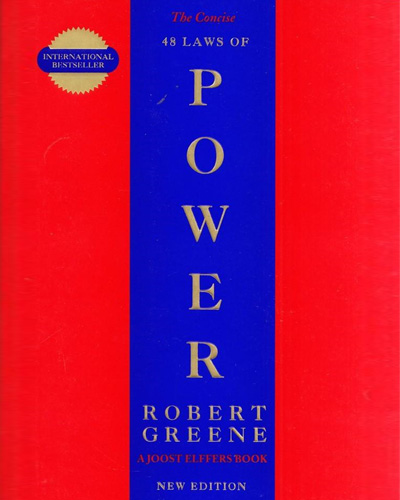
| Language | From $0.00 |
| Release Date | January 1, 1998 |
| Genre | Nonfiction |
| Author | Robert Greene |
| File Size | Penguin Books |
| Rating | (4.15) |
The 48 Laws of Power is a comprehensive guide to understanding and mastering the art of power, drawing on historical and philosophical examples to illustrate each of the 48 laws. The book is designed to provide readers with a toolkit for navigating complex power dynamics in their personal and professional lives. Each law is accompanied by a historical anecdote, a brief explanation of its significance, and tips on how to apply it in everyday situations. The 48 laws range from the seemingly benign, such as “Law 4: Always Say Less Than Necessary,” to the more Machiavellian, like “Law 15: Crush Your Enemy Totally.”
Power is a central aspect of human life and relationships, shaping our interactions in both subtle and overt ways. The 48 Laws of Power seeks to demystify this often-misunderstood concept, exploring the various forms it can take, from physical strength to social influence, and the ways in which it can be acquired and maintained.
The book emphasizes that understanding and mastering power dynamics is essential for success, whether in business, politics, or personal relationships.
Many of the 48 laws revolve around the art of manipulation, offering strategies for influencing others and controlling various aspects of one’s environment. These tactics include the use of charm, deception, and selective disclosure of information.
The book raises ethical questions about the use of manipulation for personal gain, challenging readers to consider the potential consequences of their actions and the moral implications of seeking power.
Greene draws on a wide variety of historical figures and events to illustrate the 48 laws, including examples from ancient civilizations, European royalty, and modern political leaders. These stories serve to contextualize the laws, demonstrating their relevance across time and cultures.
The book encourages readers to learn from history, using the successes and failures of past power players as a guide for their own pursuits.
The engaging writing style and use of storytelling make The 48 Laws of Power a compelling read, even for those who may not have a prior interest in the subject matter. The historical anecdotes serve to bring the laws to life, providing memorable examples that are easy to recall and apply.
The wide range of historical and contemporary examples ensures that readers from various backgrounds and interests will find something to relate to within the book, enhancing its appeal and accessibility.
The practicality of the advice and strategies provided is another strength of the book, offering actionable tips that can be applied in a variety of situations. This practical approach sets The 48 Laws of Power apart from more abstract, theoretical works on power and influence.
The book’s perceived promotion of unethical behavior has been a source of controversy since its publication. Critics argue that the manipulation tactics and cutthroat strategies advocated by Greene can lead to a loss of personal integrity and negative consequences for society as a whole.
The potential for misuse of the information provided is another point of concern, with some critics fearing that the book could serve as a ‘how-to’ guide for aspiring manipulators and power-seekers.
Additionally, there have been critiques on the book’s historical accuracy and interpretation, with some historians and scholars arguing that Greene may have cherry-picked or misrepresented certain events to support his arguments.
Reading The 48 Laws of Power has expanded my understanding of the intricacies of power dynamics and the role they play in our everyday lives. The historical anecdotes and practical tips provided have given me a new perspective on my own relationships and ambitions.
While I may not agree with or choose to employ all of the tactics outlined in the book, I appreciate the insights it has provided and the opportunity for self-reflection it has offered.
I would recommend The 48 Laws of Power to those who are interested in history, human behavior, or seeking a deeper understanding of the mechanisms behind power and influence.
The 48 Laws of Power is a thought-provoking book that offers valuable insights into the nuances of power dynamics. While it may be controversial for some, its captivating storytelling and practical advice make it a worthwhile read for anyone interested in understanding the complexities of human relationships and the role of power in our lives. Ultimately, it’s up to the reader to decide how to apply these lessons in their own life.